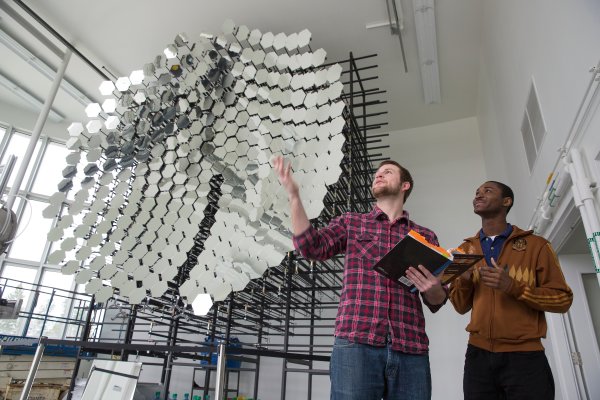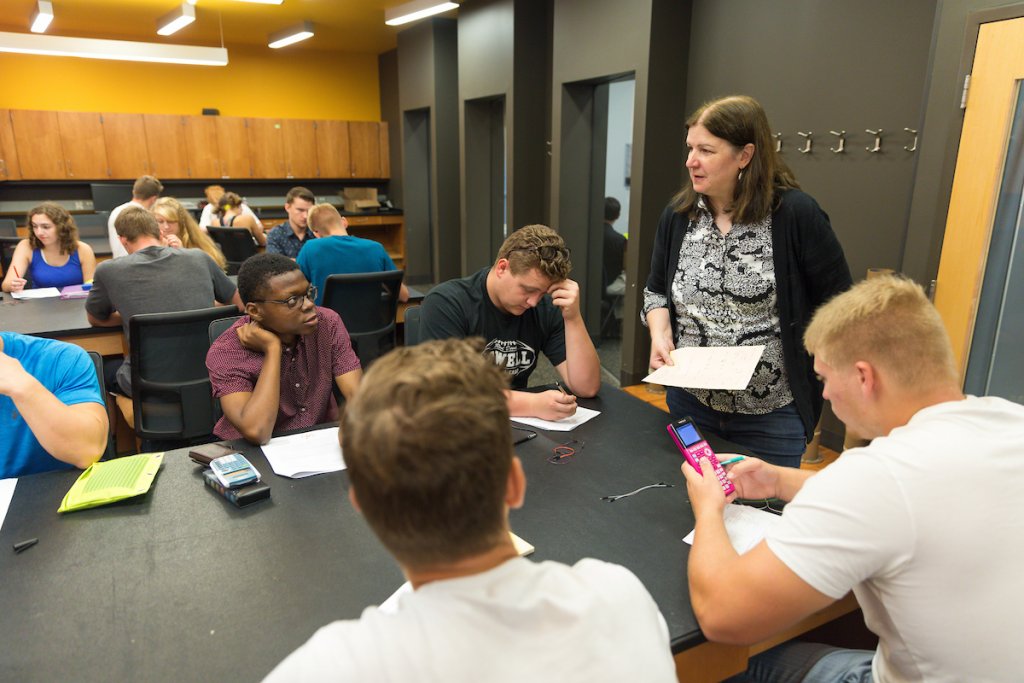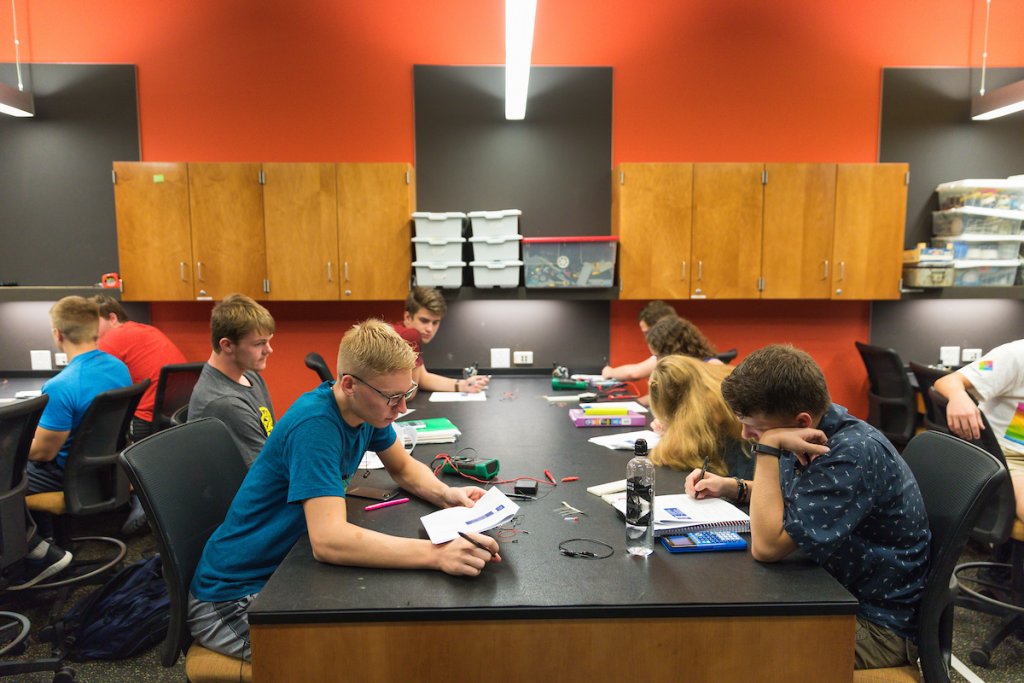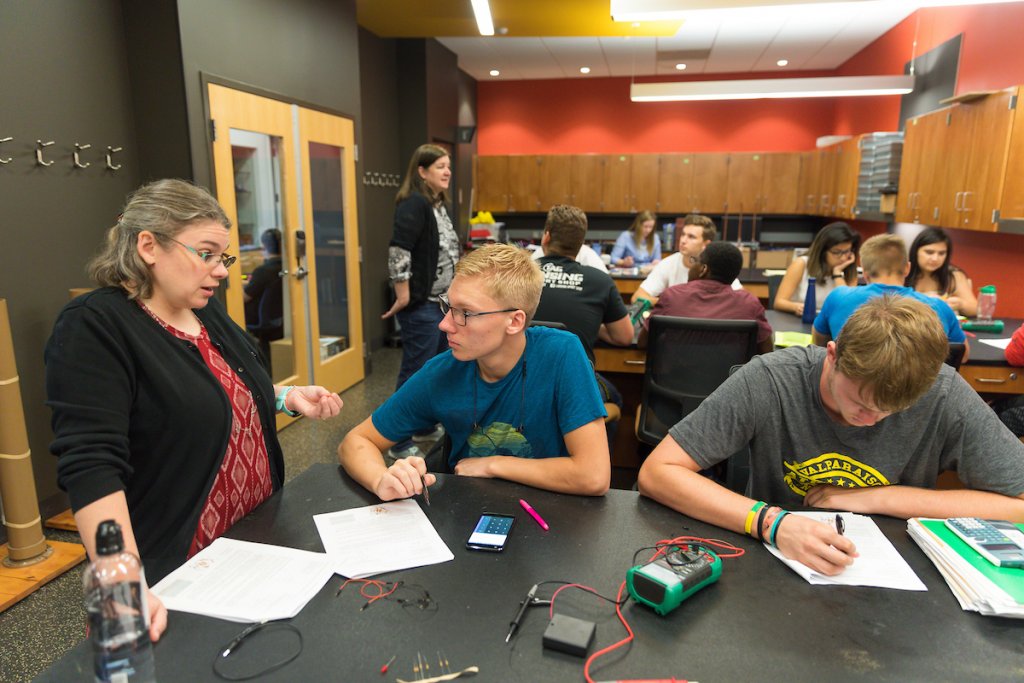First-Year Program
Although first-year students know that they want to be an engineer, no one assumes they know what kind of engineer they want to be.
Students are directly admitted into the major of their choice if they know what they want to study. About half the incoming students are unsure of their engineering major and are admitted into the College of Engineering as an undecided engineer. All students have two semester to reaffirm or choose their engineering major and the coursework they take will help them make an informed choice.
To assist with their selection, first-year engineering students enroll in GE 100, Fundamentals of Engineering, to introduce them to the majors that Valpo offers. The course has two components, an experiential component and a seminar component.
In the experiential component of the course, the interdisciplinary nature of engineering is emphasized. Student work in teams to solve a multi-disciplinary design project, such as an artificial kidney, while learning how the different engineering disciplines are infused in the project. Faculty use mini-lectures and demonstrations to introduce students to fundamental concepts in each of the disciplines. Teamwork, important in a job setting, is also emphasized in the projects. The small class size (usually fewer than 24 students) allow first-year students and faculty to become better acquainted.
In the seminar component of the course, outstanding engineering graduates speak to first-year students about their careers, providing important insight. In other sessions, students learn about engineering opportunities such as the Career Center and Study Abroad.
At the end of their first year, students will see a positive and substantial improvement in their ability to
- Describe engineering, including aspects such as problem solving and ethics
- Identify and describe the engineering disciplines (i.e., civil, computer, electrical, environmental, bioengineering and mechanical)
- Reaffirm or choose a major
- Discuss various options within engineering, both as an undergraduate (e.g., co-op, Study Abroad, etc.) and as a graduate (e.g., careers)
- Work in a team environment
- Identify with their new engineering “family,” including both faculty and students



